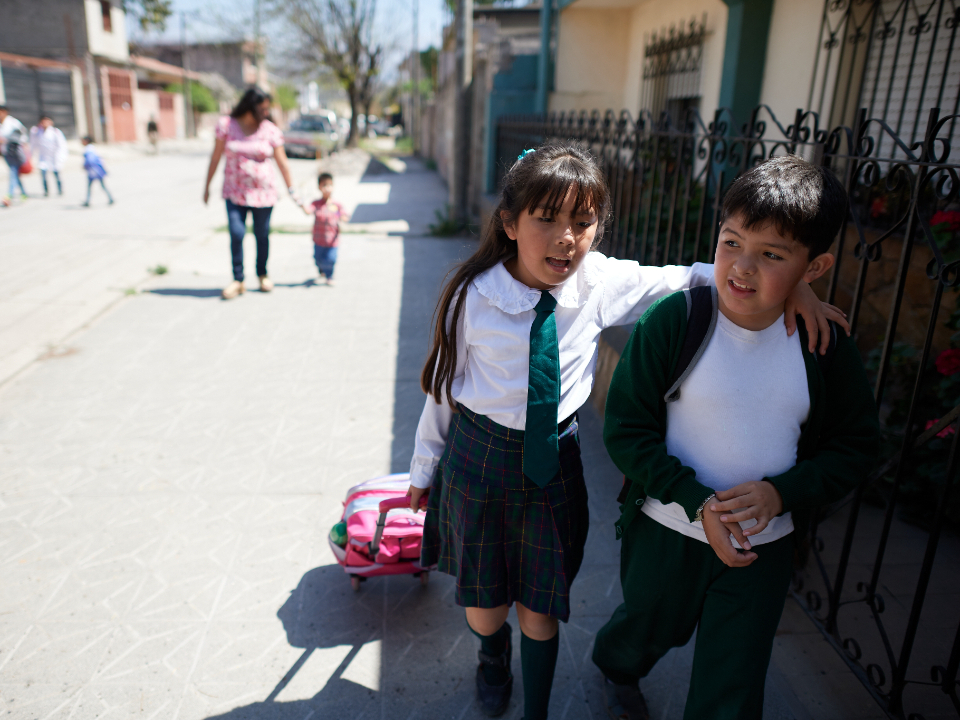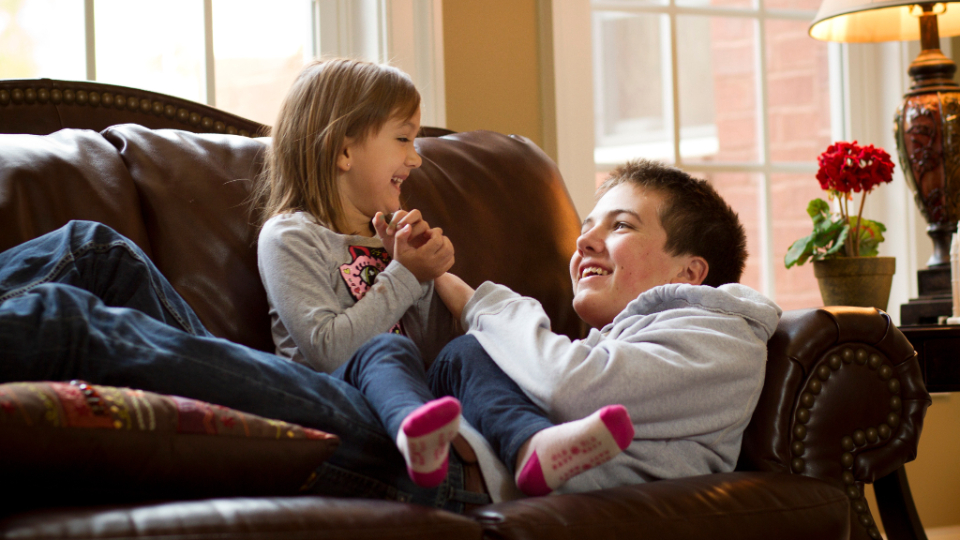
2654be31313f8d6460f9f6133e8b60f1ed1a94b7.jpeg
A Brigham Young University study conducted over 13 years ago is getting new life through social media. The study looked at sibling relationships and found that sisters give their siblings better mental health.2023 by Intellectual Reserve, Inc. All rights reserved.This story appears here courtesy of TheChurchNews.com. It is not for use by other media.
By Kaitlyn Bancroft, Church News
A Brigham Young University study conducted over 13 years ago is getting new life through social media.
The study, “Self-Regulation as a Mediator Between Sibling Relationship Quality and Early Adolescents’ Positive and Negative Outcomes,” found that sisters give their siblings better mental health, BYU Communications reported. The research was originally published in the August 2010 Journal of Family Psychology by researchers Laura M. Padilla-Walker, James M. Harper and Alex Jensen.
But in October 2023, the Instagram page Wealth shared the study with its 8.5 million followers.
Portuguese-language Instagram account vocesabia also shared the study in October 2023 with its 6 million followers.
And on October 31, 2023, news site Upworthy published a story about the study. Reader’s Digest also mentioned it in an April 2022 story.
This isn’t the first time that the 2010 sibling study has seen a resurgence of interest. Parenting magazine Motherly wrote about it in 2018, and HuffPost subsequently published Motherly’s article.
The study garnered plenty of interest in 2010, too — The Guardian, ScienceDaily and Deseret News all wrote about it at the time.
Researcher Alex Jensen said he’s not sure why interest in the study is rising again, but the finding on sisters and mental health is what seems to catch people’s attention. He also speculated that people might be thinking about their family relationships more as the holidays approach.
He added that, from a research perspective, studies are typically considered relevant for around 15 years.
“For this particular study ... it probably will be relevant much longer [than 15 years] because it was so general,” he said.
Sisters and Mental Health
The study looked at 395 families with more than one child, at least one of whom was an adolescent between the ages of 10 and 14. Researchers gathered information on each family’s dynamics, then followed up a year later.
Statistical analyses showed having a sister protected adolescents from feeling lonely, unloved, guilty, conscious or fearful. This was true whether the sister was younger or older, and no matter how far apart the siblings’ ages were.
Jensen said there’s some speculation around why this trend emerged, but data points to the measures by which researchers defined a good sibling relationship, such as talking to each other, spending time together and sharing feelings.
Researchers consistently find that sisters report doing “a lot more” emotional sharing, Jensen said, and girls do more of it than boys.
“So when you’re talking about mental health [and] having a sister, she’s probably more likely to have conversations with you about, ‘How are you feeling?’” he said. “Not just chit chat, but [being] a little more intimate, a little more involved emotionally. And I suspect that is what is driving that mental health finding.”
That doesn’t mean brothers can’t or don’t connect emotionally, Jensen said. Those relationships simply might look different, such as sharing experiences more than emotional conversations.
The study also found that siblings of either gender promote good deeds and foster charitable attitudes more than parents — in fact, the relationship between sibling affection and good deeds was twice as strong as between parenting and good deeds.

BYU-research-sisters
A Brigham Young University study conducted over 13 years ago is getting new life through social media. The study looked at sibling relationships and found that sisters give their siblings better mental health.2023 by Intellectual Reserve, Inc. All rights reserved.Sibling Relationships
Jensen, who was an undergraduate student during the 2010 sibling study, is now the Marriage, Family, and Human Development program coordinator at BYU. And over the last 13 years, he’s continued researching sibling relationships.
Some of his findings are “very intuitive,” he said, such as research showing that siblings are good for people. “Generally, [having siblings is] linked to more life satisfaction, and that’s particularly when they support each other and when they love each other. ... When siblings care for each other, life just tends to be better.”
But sometimes those “common sense” findings are useful because they highlight exceptions, such as the 10% of people who want no relationship with their siblings when they reach adulthood, Jensen said.
And when it comes to improving sibling relationships, Jensen encouraged people to work out any lingering resentment issues, such as if one child feels that their sibling was their parents’ favorite while growing up.
“Sometimes when we talk about it with each other, we realize that we don’t all see things the same way, and sometimes there’s more to the story,” he said.
For parents, Jensen said they can foster good sibling relationships by treating their children as equitably as possible. This especially means not comparing them to each other, he said.
“If I say, ‘Look to your sibling as a model for how you should act,’ they probably already know that,” Jensen said. “By bringing those things in, it just damages their relationship with each other, and it damages their relationship with you.”
He also emphasized the importance of maintaining positive sibling relationships for the long run. Based on averages of when people have their first child and when parents die, the typical sibling relationship is about 50% longer than any other relationship, he said.
“Siblings are the family ... that are there the longest. And we don’t want to neglect those relationships,” Jensen said.